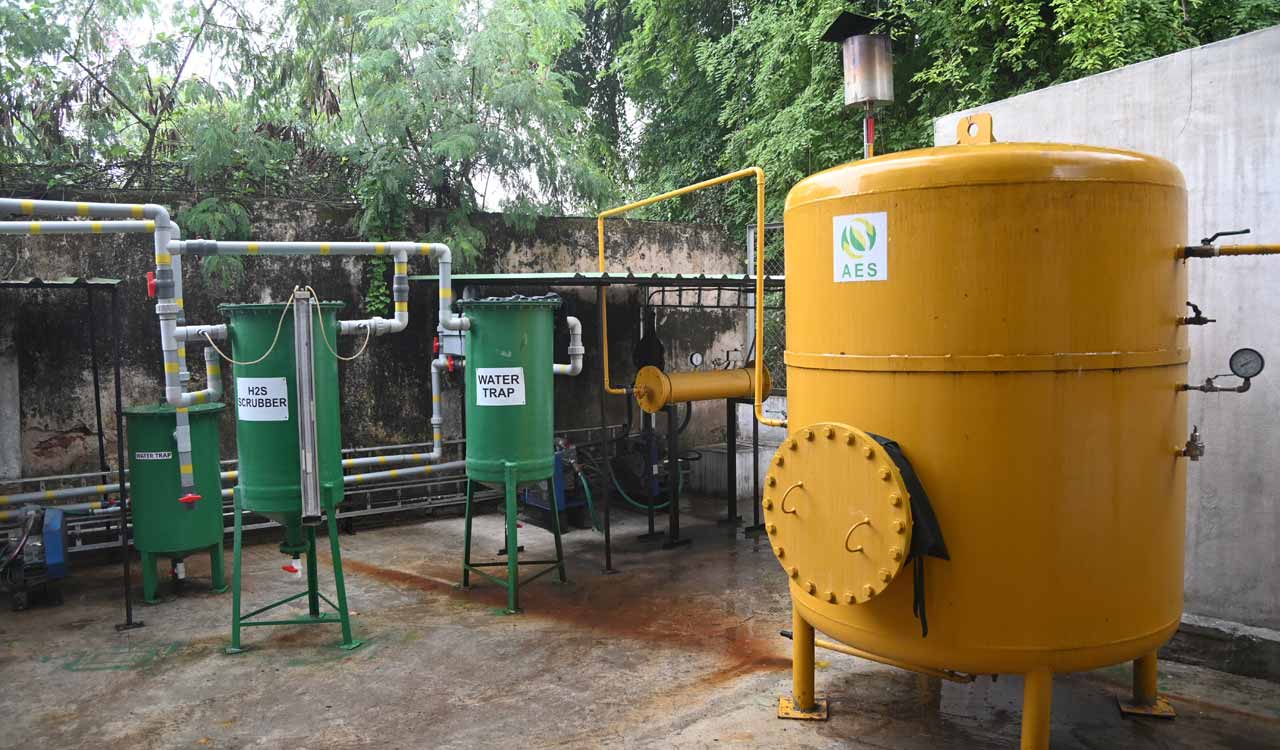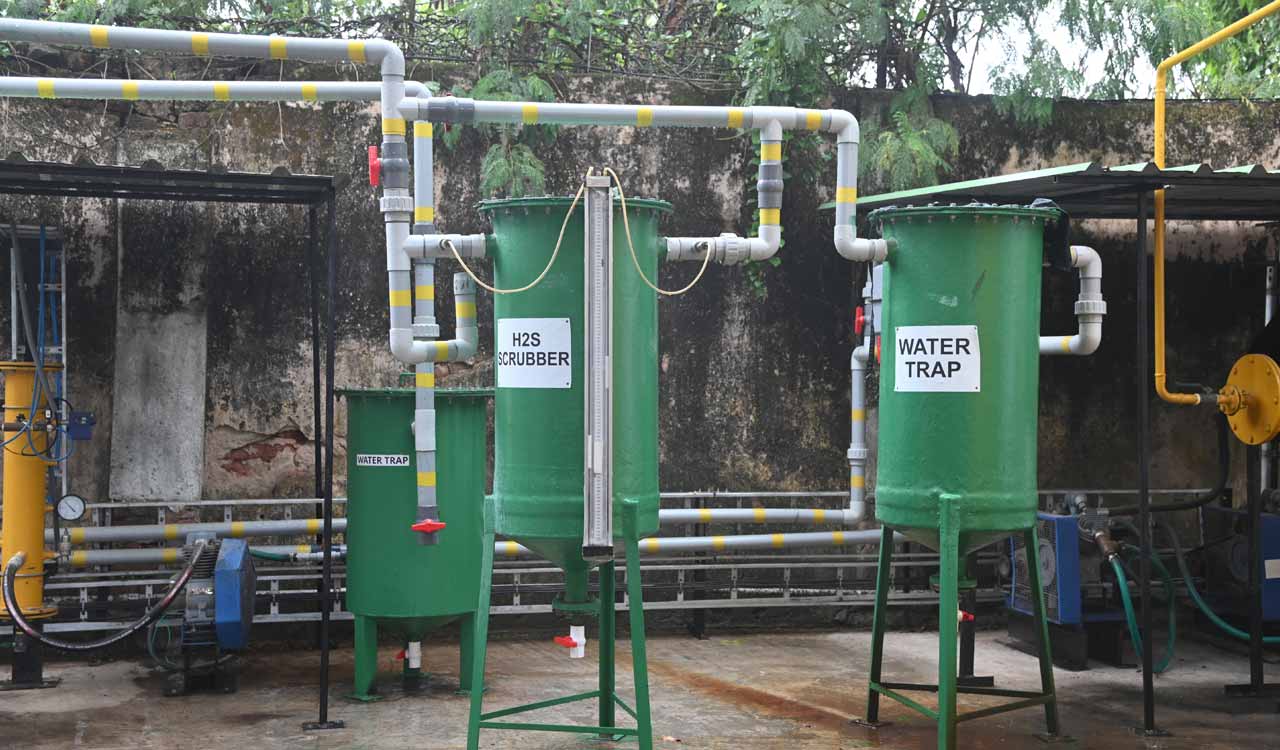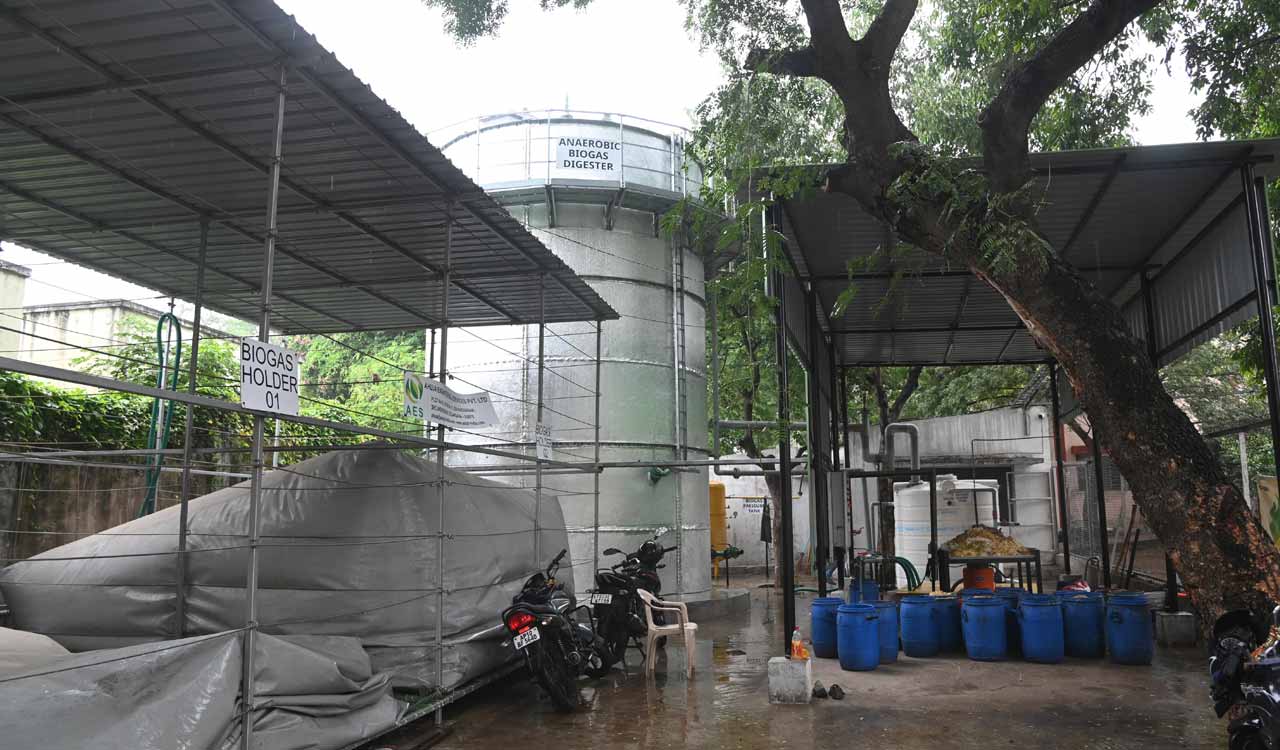Biogas plant in OU Women’s hostels changes campus environment, reduces LPG, firewood consumption
Osmania University installed a biogas plant in women's hostels, turning food waste into clean cooking fuel. This eco-friendly project reduces firewood and LPG use, lowers carbon emissions, and saves costs, while bio slurry fertilises campus gardens
Hyderabad: The installation of a biogas plant in the women’s hostels at Osmania University (OU) has resulted in a noticeable reduction in LPG usage and firewood consumption, contributing to a more sustainable and eco-friendly campus.
In December 2024, the Mahalakshmi Biogas Plant was inaugurated on the premises of the Women’s Hostel in OU. The plant was set up by Saahas under the ReSET CSR initiative funded by KPMG India.
Operator of Ahuja Engineering Company, which installed the plant, Sandeep, explaining the process of generating biogas from food waste, said, “We have arranged designated bins in the mess at all the hostels. The plant processes 2 tons of wet (food) waste, which is collected daily from the mess of the hostels and is transported to the site through an electric vehicle.”
At the site, the bins are weighed and the food waste reaches the sorting table, where it is crushed in the crusher and mixed with slurry, fed to the digester tank. Here, anaerobic digestion takes place in the digester to form biogas, said the operator.
The biogas is generated in a tank and then passes through the H2S and water trap scrubber to absorb H2S and moisture. In this process, the biogas is purified to around 60% methane content. This purified gas is stored in the biogas storage balloons from where it is supplied to the kitchen through a pipeline system, Sandeep said.
“We have provided biogas stoves to the kitchens for preparing food for hostel inmates. Through this biogas, food preparation can be done for 300 to 400 members,” he said.
“It was a challenging task for us to handle the food waste generated from the hostels, which used to be sent to those rearing cattle,” Director, Campus Hostels for Women, Osmania University, Y Kalyana Lakshmi, told Telangana Today. This situation often led to unsanitary conditions and unpleasant odours in the area, she said.
“After the biogas plant, we are saving on firewood and LPG gas for which every month, we used to spend Rs 40,000 to 50,000,” the Director explained.
Biogas plant at OU:
• Conversion of biodegradable waste into clean energy
• Around 350 kg of food waste and other dry waste is treated
• Prevents the food waste from going to landfill
• Reduces carbon emissions up to 85 tons per month
• Saves Rs 40,000 from on firewood and LPG cylinders
• Food waste from 15 hostels feeds the plant
• Bio slurry is used as a fertiliser in campus gardens and green areas
Related News
-
BC Commission visits Kummera over infant’s death
1 min ago -
BRS leaders condemn demolition of houses at Velugumatla, point fingers at Minister Tummala
6 mins ago -
Opinion: We have been Epsteined — informing ourselves to death
13 mins ago -
BRS wants re-election for Ramagundam Municipal Corporation
23 mins ago -
Six of family, including twin infants, killed in Meerut house fire
41 mins ago -
Main accused in Rs 547 crore cyber case Vikas Chowdary caught by Khammam police
17 mins ago -
KT Rama Rao urges speedy completion of Adilabad IT Tower to create jobs
1 hour ago -
PM Modi to visit Israel to boost defence and trade ties amid regional tensions
1 hour ago







